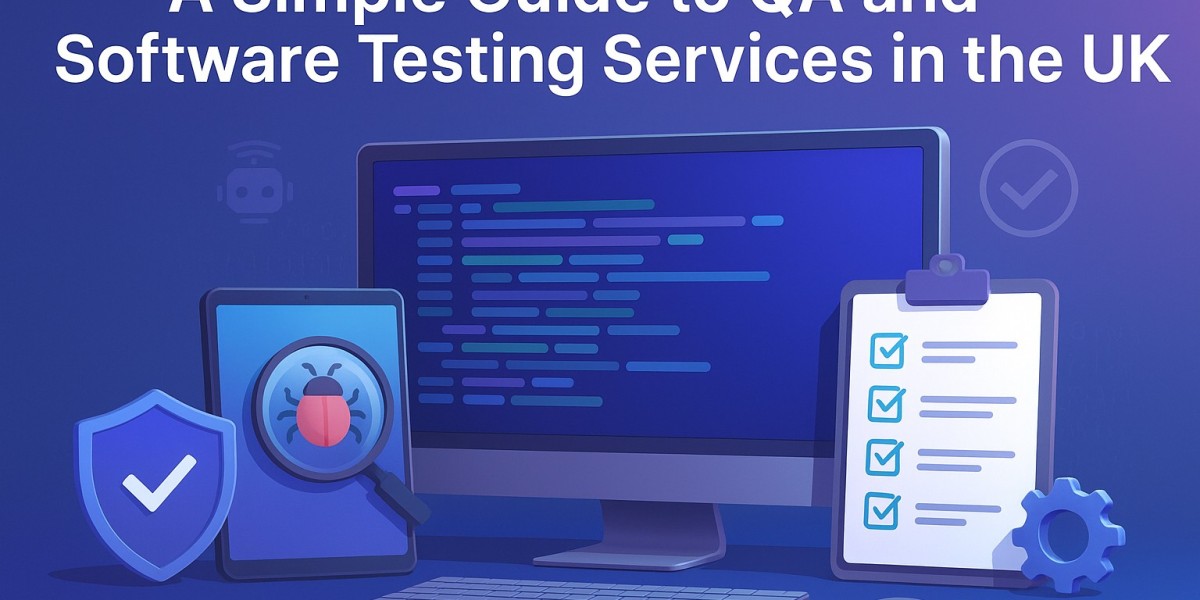Introduction
In the ever-evolving world of software development, delivering robust, bug-free applications is non-negotiable. Businesses across the UK, from tech startups to established enterprises, are increasingly investing in QA and Software Testing Services to ensure product quality, performance, and security. Whether you're building an IoT-based platform or launching a consumer mobile app, quality assurance has become a critical component of software success.
This guide is designed for UK-based CTOs, business owners, and tech leads looking to understand the nuances of Software Testing Services UK. We'll explore core concepts, practical benefits, industry-specific use cases, emerging trends, and how to choose the right Software QA Company UK for your needs.
We'll also highlight how these services intersect with sectors like IoT App Development, a rapidly growing industry in the UK.
What Are QA and Software Testing Services?
Understanding QA vs. Software Testing
Quality Assurance (QA) focuses on improving the development process and preventing defects before they happen.
Software Testing, on the other hand, involves identifying bugs or issues in the code post-development.
Together, QA and testing ensure that your final product is stable, scalable, and secure.
Types of QA Testing Services
Manual Testing
Automated Testing
Functional Testing
Performance Testing
Security Testing
Regression Testing
Usability Testing
These services can be delivered in-house or through a trusted Software QA Company UK.
Why QA Matters for UK Businesses
Minimising Risk and Cost
Early detection of bugs can reduce post-release fixes, helping businesses save time and money.
Enhancing Customer Trust
Delivering a reliable and intuitive app experience boosts user retention and brand reputation.
Staying Competitive
In industries like IoT, FinTech, and eLearning, a stable application can be a major competitive advantage.
Industry Applications of QA Services in the UK
1. IoT App Development
The UK is home to a growing number of IoT App Development Companies, particularly in London, Manchester, and Birmingham. Ensuring the quality of IoT apps is critical due to their complex integrations with hardware and real-time data.
Businesses working with a Custom IoT Solutions UK provider must also engage in rigorous QA to test edge cases, sensor reliability, and backend stability.
2. FinTech
Compliance with financial regulations (like PSD2 and FCA guidelines) demands a high level of quality assurance. QA testing ensures apps are both secure and performant.
3. eLearning
As digital education platforms grow in popularity, usability testing ensures the end-user experience is seamless across devices and age groups.
4. On-Demand Delivery Apps
QA ensures features like real-time tracking, push notifications, and payment integrations work flawlessly under load.
Benefits of Hiring a Software QA Company UK
1. Domain Expertise
Reputable UK-based QA providers bring domain-specific knowledge across sectors like IoT, finance, education, and healthcare.
2. Access to Tools & Tech
Modern QA tools such as Selenium, JMeter, Postman, and BrowserStack can be expensive and time-consuming to manage in-house. QA companies already have these.
3. Scalability
Need to scale up or down depending on your development cycle? An external QA team offers that flexibility.
4. Geo-Alignment
Partnering with a Software QA Company UK ensures you work within similar time zones, laws (e.g., GDPR), and business cultures.
QA and IoT App Development: A Strategic Alliance
Given the technical complexity of IoT App Development Services, integrating QA from the start is critical. Testing in these environments goes beyond UI and performance to include hardware compatibility, data security, and real-time sync.
A trusted IoT App Development Company in UK often pairs development with robust QA to ensure full-stack reliability. Whether you’re building a smart home app or an industrial IoT platform, QA testing is essential.
Emerging Trends in QA and Software Testing Services UK
1. Test Automation
More companies are adopting test automation to speed up release cycles and reduce human error.
2. AI-Driven Testing
AI is being used to predict failures, automate test scripts, and improve overall accuracy.
3. Continuous Testing
Aligned with DevOps and Agile practices, continuous testing ensures issues are caught earlier in the development pipeline.
4. Security as a Priority
With rising cyber threats, security testing is becoming a primary focus, especially in IoT and FinTech.
How to Choose the Right QA Testing Services in the UK
1. Define Your Goals
Are you launching a new product or maintaining an existing one? The scope will dictate the type of QA service you need.
2. Check Industry Experience
Look for a QA provider that has experience in your sector—whether it’s IoT, finance, healthcare, or logistics.
3. Evaluate Methodologies
Ask about their testing methodologies—do they follow Agile? Do they offer automated testing?
4. Request Case Studies
Good providers will have proven success stories and references.
5. Prioritise Communication
Choose a partner that offers transparency, clear documentation, and regular reporting.
FAQs
1. What do QA and Software Testing Services include?
QA and Software Testing Services include manual and automated testing, performance testing, security testing, regression testing, and usability checks to ensure your app is bug-free and performs well.
2. Why should UK businesses invest in Software QA?
Investing in QA helps UK businesses reduce post-launch issues, comply with regulations, and offer users a smooth, reliable experience—critical in sectors like IoT and FinTech.
3. What is the difference between QA and testing?
QA focuses on improving processes to prevent bugs. Testing finds existing bugs in the application. Both are essential for delivering high-quality software.
4. How do I choose a Software QA Company in the UK?
Choose a provider with industry experience, strong client reviews, clear methodologies, and the ability to scale with your development needs.
5. How does QA support IoT App Development?
QA ensures IoT apps are stable, secure, and compatible with various hardware, sensors, and platforms. It's crucial for real-time performance and data accuracy.






